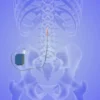Plantar fasciitis is a common cause of foot pain — so common it accounts for about a million doctor visits yearly in the United States. Plantar fasciitis happens when the strong band of tissue that spans the bottom of your foot (the plantar fascia) becomes irritated and inflamed, especially in the heel area.
While anyone can develop plantar fasciitis, it’s more common among older people who:
- Are older
- Spend lots of time on their feet
- Are overweight
- Subject their feet to repeated impacts (like running)
Flat feet and very tight calf muscles can also lead to plantar fasciitis.
Sometimes, plantar fasciitis resolves with plenty of rest, custom orthotics, or physical therapy. But other times, it persists, and more advanced treatments are required.
Our team at Advanced Spine and Pain Center specializes in relieving plantar fasciitis-related foot pain using state-of-the-art TenJet® therapy. Here, learn how TenJet works and how it could help you finally find relief for nagging plantar fasciitis symptoms.
How TenJet works
The inflammation involved in plantar fasciitis damages tissue over time. These focal areas of damaged tissue are very painful, and eventually, scar tissue begins to form.
Scar tissue is less elastic than surrounding tissue and restricts normal movement, leading to additional inflammation and discomfort. Treating these areas of damaged tissue is important for quickly relieving painful symptoms and overall healing.
While mild plantar fasciitis may resolve with rest and physical therapy, some people find these methods ineffective, particularly for more severe cases. For years, plantar fasciitis release surgery was the only long-lasting solution for patients with chronic or severe plantar fasciitis. But today, TenJet offers an alternative.
TenJet uses a focused stream of saline (salt water) to break up damaged tissue, including scar tissue while leaving healthy tissue intact. The result is a healthier plantar fascia that functions without persistent, chronic pain.
TenJet treatment: What to expect
Treatment begins with a local anesthetic that numbs the bottom of your foot. The anesthetic keeps you comfortable throughout the procedure.
Next, the TenJet needle is inserted through a tiny incision. Once in place, the hollow needle delivers pressurized saline that gently breaks apart scar tissue so it can be eliminated naturally. The entire procedure takes about 15-30 minutes.
Afterward, you’ll be discharged home with care instructions to promote rapid healing. Once the anesthetic wears off, you might have some mild soreness in the injection site, but you can manage it with over-the-counter pain relievers and an ice pack if needed.
In most cases, you’ll see improvements in your symptoms within a couple of weeks. Most people benefit from physical therapy afterward to restore normal flexibility and additional symptom relief.
Find relief for your plantar fasciitis
TenJet relieves plantar fasciitis without incisions, sutures, or downtime. To learn how it can reduce painful symptoms, book an appointment online or over the phone with the team at our three locations in San Antonio, Texas, today.





